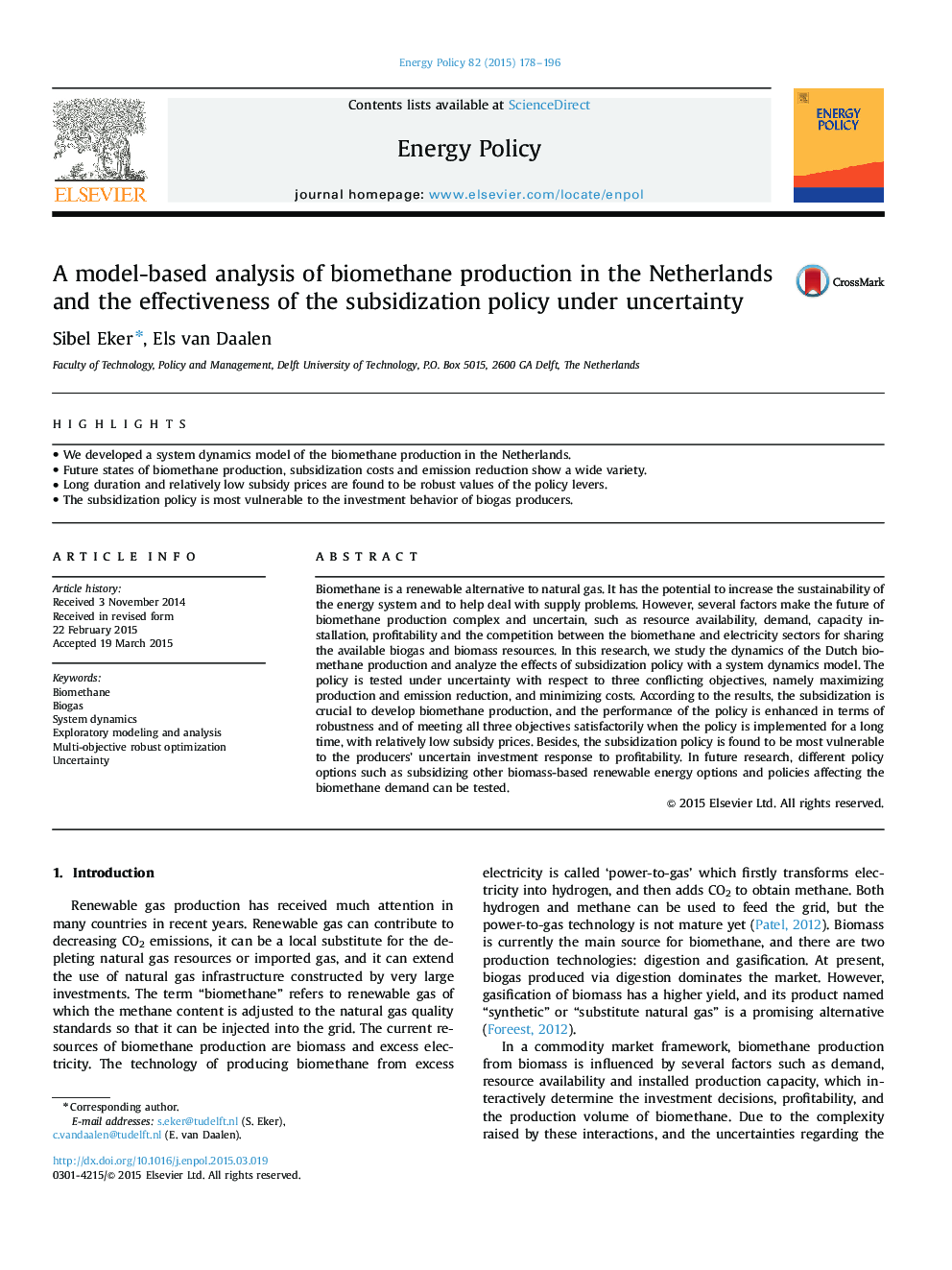| Article ID | Journal | Published Year | Pages | File Type |
|---|---|---|---|---|
| 7400904 | Energy Policy | 2015 | 19 Pages |
Abstract
Biomethane is a renewable alternative to natural gas. It has the potential to increase the sustainability of the energy system and to help deal with supply problems. However, several factors make the future of biomethane production complex and uncertain, such as resource availability, demand, capacity installation, profitability and the competition between the biomethane and electricity sectors for sharing the available biogas and biomass resources. In this research, we study the dynamics of the Dutch biomethane production and analyze the effects of subsidization policy with a system dynamics model. The policy is tested under uncertainty with respect to three conflicting objectives, namely maximizing production and emission reduction, and minimizing costs. According to the results, the subsidization is crucial to develop biomethane production, and the performance of the policy is enhanced in terms of robustness and of meeting all three objectives satisfactorily when the policy is implemented for a long time, with relatively low subsidy prices. Besides, the subsidization policy is found to be most vulnerable to the producers' uncertain investment response to profitability. In future research, different policy options such as subsidizing other biomass-based renewable energy options and policies affecting the biomethane demand can be tested.
Keywords
Related Topics
Physical Sciences and Engineering
Energy
Energy Engineering and Power Technology
Authors
Sibel Eker, Els van Daalen,
